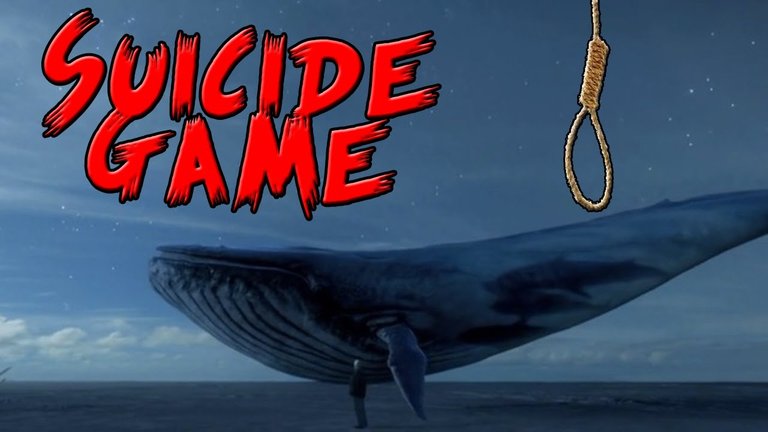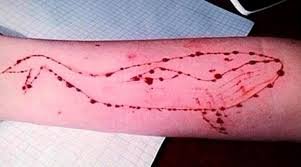The reality behind the theory of killer game ‘Blue Whale’

A teen boy comes across the online game, The Blue Whale. He is given one challenge after the other. He accomplishes every task and keeps on moving to the subsequent levels. The final and concluding challenge asks him to commit suicide. He clicks himself on top of a building and jumps. If police speculations are to be believed, this is what led to the death of the 14-year-old Mumbai boy four days ago. This is the first death in India, which is being linked to the infamous Blue Whale game.
The standard 9 boy had allegedly discussed the game with his friends, telling them about the final stage. They thought he was joking when he told them he won't be coming to the school anymore. The game is believed to have rocked many teen lives in Russia and even in the UK.
UPDATE: Well, if you have already tried looking for the game online, you'd know it's not publicly available . The administrators strictly control who can gain access to the game. Recent reports suggest that the admins identify their victims and send them the link, which once opened on their phones, copies every single data from their devices to the administrator's.
For the uninitiated, Blue Whale made its debut in Russia almost four years ago (in 2013) and is believed to have killed more than 100 teens so far. Recently its creator was sentenced to three years of imprisonment for seeking out and instigating teenagers on the Internet to take the challenge, which ends up in the participant committing suicide. Reportedly, the game has challenges ranging from cutting one's wrist to watching horror movies in the middle of the night. Reports suggest a lot of young minds succumbing to this sort of online manipulation.
Commenting on the first Blue Whale death in India, Mumbai-based clinical psychologist and author Seema Hingorani says, "I am quite convinced that the kid was suffering from deep underlying depression. This made him the perfect victim for a virtual game like Blue Whale, which offers thrill and helped him set aside the sorrows of his real life."
What makes kids so susceptible and vulnerable?
Delhi-based Samir Parikh, director, department of mental health and behavioural sciences, Fortis Hospital explains, "Teenagers are anyway undergoing internal struggle, facing questions like 'Who am I?' 'Do people like me?' 'Do my friends find me good enough?' 'Am I lonely?' They are the best targets for such games that look out for vulnerable teens who seek acceptance, acknowledgement and attention from peers." Leading ahead in such games that dares you with tasks offers a boost to self-esteem and sends positive strokes. And in that adrenaline rush, they forget that it's coming at the cost of their lives.
Parents, beware
The teenage brain can be complex and confusing. Neuroscientist and author Dr Frances Jensen writes in her book 'The Teenage Brain: A Neuroscientist's Survival Guide to Raising Adolescents and Young Adults', teenage brain has 80 per cent structure and function of the adult brain. She compared teenage brain to a driver who can drive a car but does not yet know how to use the brakes to stop it.
Dr Seema shares, "Many teens come to me complaining about loneliness. They complain their parents are too busy for them and they have no friends. I recently had a 16-year-old come to me complaining he doesn't want to live because no one likes him. These are the same kids who are searching 'painless deaths' on Google. They go to suicide forums. This makes it extremely crucial for the parents to pay attention to their kids."
What parents can do
Online is a medium frequented by teens and anonymity increases the chances of experimentation. Moreover, it is easy access without supervision that makes it dangerous and alluring at the same time.
Dr Seema shares:
Parents need to keep talking to the kids. Take interest in your child's activities.
Give them space to share their feelings without negating them.
Never reprimand your teen for whining, crying or staying aloof. Try to find out the reason behind unnatural behavior. For example, a disturbed stomach could be a sign of anxiety.
Talk to your child for 20 minutes every day without interrupting them. This will help you read trouble signs - are they being bullied, body shamed or going through academic decline?
Monitor their digital behaviour and subtly keep an eye on their internet activity. It is extremely important.
Importance of media literacy
Faced with such scenarios, it is extremely important to train children to understand online risks, making media literacy extremely important. "There is a 300 per cent shortage of psychologists in our country. To make up for this deficit, it is important to expose kids and equip them to face the reality behind the online world," adds Dr Parikh. They need to develop the ability of critical thinking, which will help them understand the difference between fantasy and reality.
Children are exposed to violence, bullying, drugs, alcohol, sexualisation and even body shaming through media. This can influence their behavior and if left unmonitored can lead to depression, self image issues, violence or aggression. But if they are taught to critically approach any content online, they will find themselves better equipped to face threats of the unreal world.
